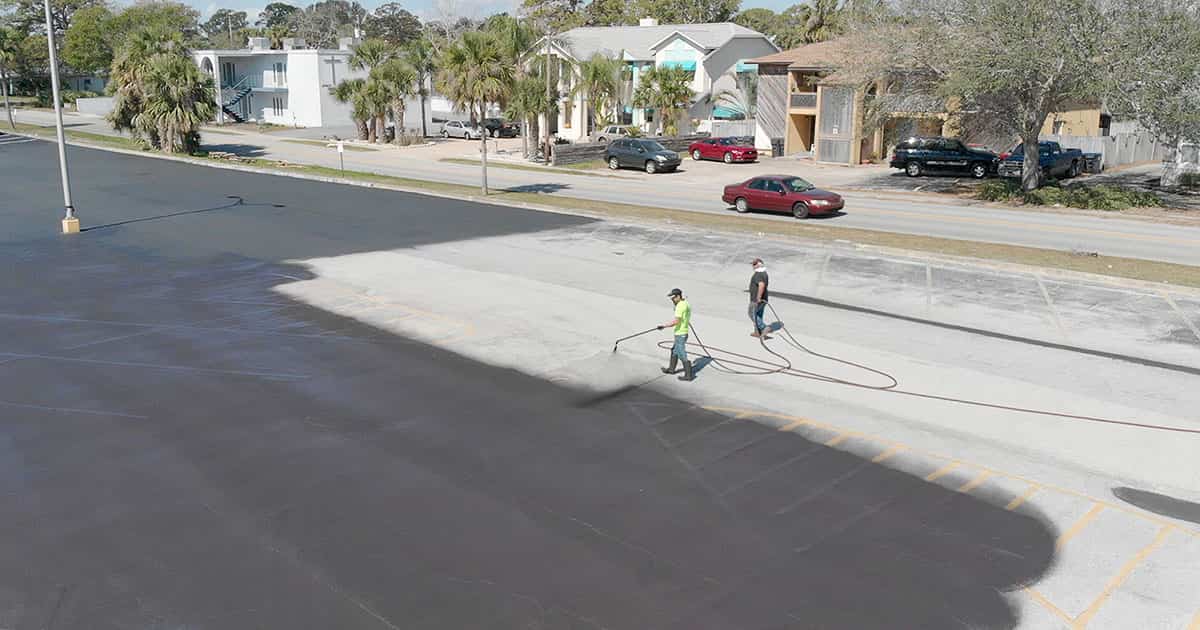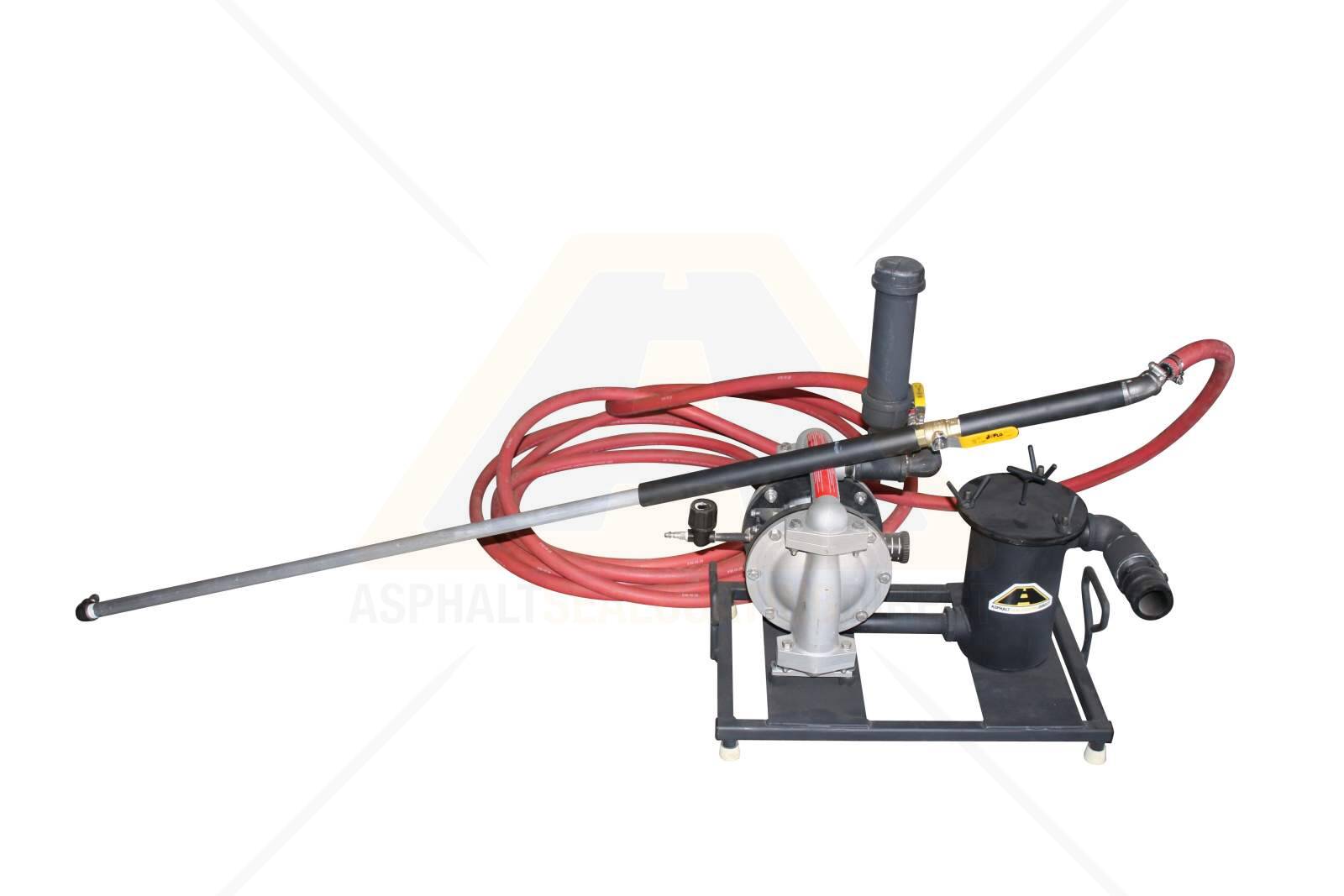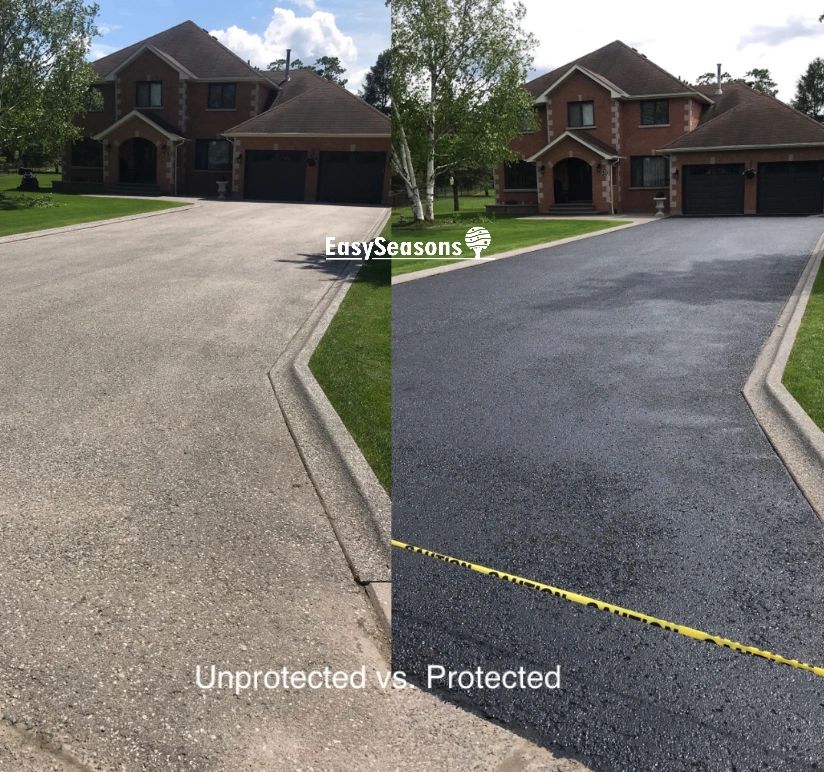Boost Commercial Appeal: Hot Mix Asphalt Sealing for Angled Parking Lots
Boost Commercial Appeal: Hot Mix Asphalt Sealing for Angled Parking Lots
Blog Article
Warm Mix Asphalt: A Lasting Service for Sidewalk
Hot Mix Asphalt (HMA) has emerged as a leading sustainable choice for pavement remedies, supplying a myriad of ingenious innovations and ecological advantages. As the demand for green building and construction practices expands, exploring the nuances of HMA's sustainability can provide useful insights right into the future of sidewalk services.
Ecological Benefits of Hot Mix Asphalt

Additionally, Hot Mix Asphalt helps to mitigate city warm island effects. Its dark color soaks up sunshine, reducing the quantity of heat reflected back into the environment contrasted to lighter-colored sidewalks. This can lower ambient temperature levels in city locations, lowering the need for air conditioning and eventually lowering energy intake.
In enhancement, Hot Mix Asphalt adds to improved stormwater monitoring. Its permeable nature enables water to penetrate the pavement and reenergize groundwater products, minimizing overflow and the threat of flooding. These ecological advantages make Warm Mix Asphalt a sustainable choice for leading roads and highways.
Power Effectiveness in HMA Production
Is energy efficiency a vital factor in the production of Hot Mix Asphalt (HMA)? Absolutely. Power plays a substantial role in the manufacturing of HMA, influencing both price and ecological sustainability. One vital aspect of energy effectiveness in HMA production is using warm mix asphalt (WMA) innovations (hot mix asphalt). WMA permits for the blending and positioning of asphalt at reduced temperature levels compared to standard warm mix asphalt, leading to decreased energy intake during manufacturing. This procedure not only reduces fuel usage however also lowers greenhouse gas exhausts, making it a more ecologically pleasant option.
In addition, advancements in plant modern technologies have caused even more energy-efficient HMA production processes. Modern plants are developed with attributes like recycled asphalt pavement (RAP) handling abilities, effective burner systems, and enhanced insulation, all contributing to energy cost savings. By maximizing power use in HMA manufacturing, the market can minimize its carbon footprint while maintaining premium pavement materials. Energy effectiveness is, for that reason, a vital factor to consider in making sure the sustainability of Warm Mix Asphalt manufacturing.
Recyclability of Warm Mix Asphalt
The recyclability of Warm Mix Asphalt (HMA) is an essential facet of its sustainability and long-term environmental influence. HMA is one of the most recycled products in the United States, with over 100 million lots of redeemed asphalt sidewalk (RAP) being recycled yearly in brand-new pavement building and construction. Reusing HMA provides several environmental advantages, such as lowering the requirement for virgin products, reducing power consumption throughout production, and reducing the amount of waste sent out to landfills.
The process of reusing HMA involves grating the existing pavement, squashing it into smaller items, and blending it with new accumulation and asphalt binder to develop a recycled mix. In general, the recyclability of HMA plays a substantial duty in promoting lasting methods within the sidewalk sector.

Long-Term Efficiency of HMA
Asphalt pavements demonstrate longevity and durability over an extensive duration, showing the lasting performance of Hot Mix Asphalt (HMA) The longevity of HMA can be credited to its capability to withstand hefty traffic tons, severe climate condition, and the impacts of aging. Researches have shown that well-designed and properly constructed HMA sidewalks can last for two decades or even more with regular upkeep. The trick to making best use of the lasting performance of HMA exists in making use of top quality materials, adhering to best methods in construction, and executing effective upkeep strategies. Appropriate drain, routine examinations, and prompt fixings are crucial for preserving the architectural integrity of HMA sidewalks gradually. Furthermore, improvements in HMA technology, such as using polymer-modified binders and cozy mix asphalt, have even more boosted the resilience and longevity of HMA sidewalks. By focusing on top quality construction and upkeep practices, HMA remains to prove itself as a cost-efficient and sustainable solution for resilient sidewalk facilities.

HMA: Longevity and Sustainability
Showing both sturdiness and sustainability, Warm Mix Asphalt (HMA) has become a keystone in the building of resilient pavement infrastructures - angled parking. HMA's longevity comes from its capability to withstand heavy loads, harsh climate condition, and high traffic volumes, making it a trusted choice for roads, freeways, and flight terminal paths. The structure of HMA, which usually consists of accumulations, binder, and filler, plays an important function in boosting its long life and resistance to tear and put on
In addition, HMA's sustainability hinges on its recyclability and energy-efficient production process. The capability to recycle redeemed asphalt pavement (RAP) in brand-new HMA blends decreases the need for virgin products and lessens the environmental influence of pavement construction and maintenance. Furthermore, the energy effectiveness of generating HMA depends on its reduced mixing temperature levels contrasted to other pavement products, bring about lowered energy usage and greenhouse gas exhausts.
Verdict
Finally, hot mix asphalt (HMA) uses a sustainable remedy for pavement with its ecologically friendly qualities. HMA's recyclability, energy efficiency in manufacturing, and long-lasting sturdiness make commercial parking lot paving it a green selection for road construction. By saving all-natural resources, lowering waste, and decreasing greenhouse gas discharges, HMA plays a vital duty in promoting sustainability in framework growth. Its capability to mitigate urban heat island results additionally highlights its importance in creating resistant and eco mindful sidewalk systems.
HMA is one of the most recycled products in the United States, with over 100 million lots of reclaimed asphalt pavement (RAP) being reused each year in new pavement construction.The procedure of recycling HMA includes milling the existing pavement, crushing it right into smaller sized items, and blending it with brand-new accumulation and asphalt binder to develop a recycled mix.Asphalt sidewalks show sturdiness and strength over a prolonged duration, reflecting the lasting efficiency of Warm Mix Asphalt (HMA) In addition, advancements in HMA innovation, such as the usage of polymer-modified binders and warm mix asphalt, have further improved the sturdiness and long life of HMA pavements. The capacity to recycle recovered asphalt sidewalk (RAP) in brand-new HMA blends decreases the demand for virgin materials and decreases the environmental impact of pavement construction and upkeep.
Report this page